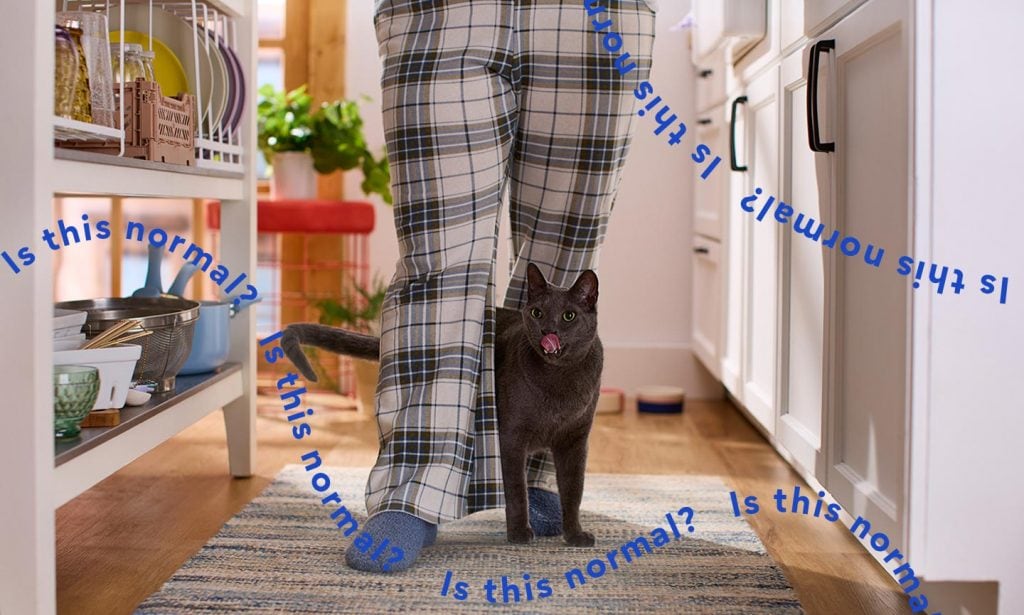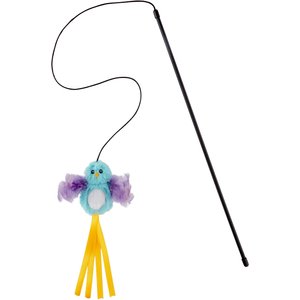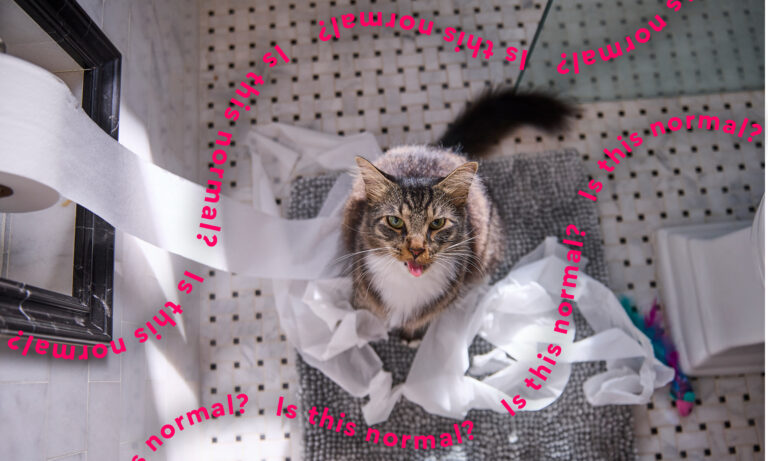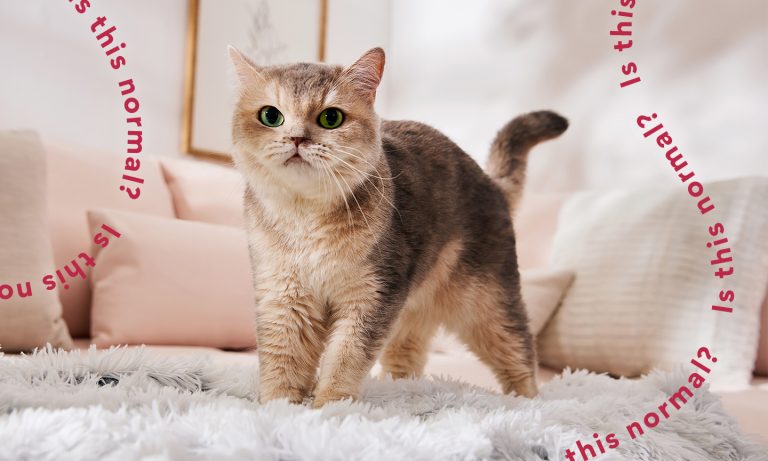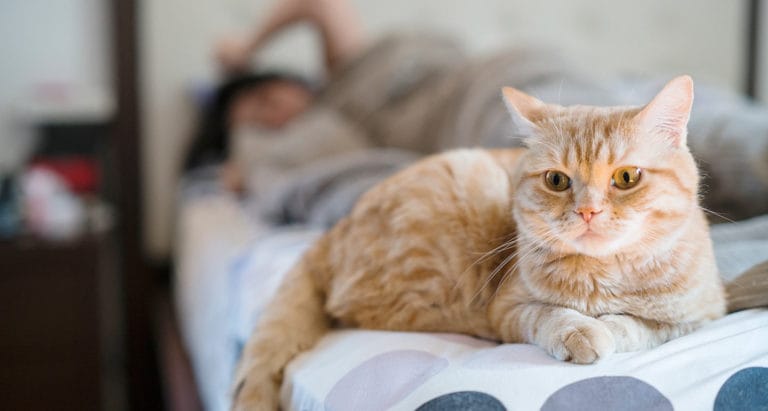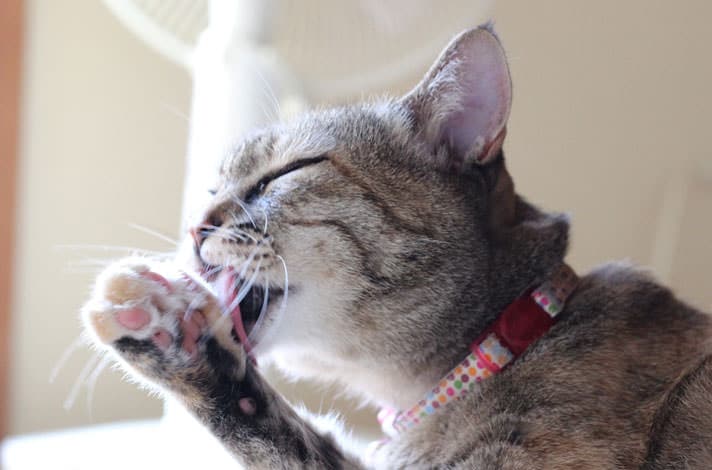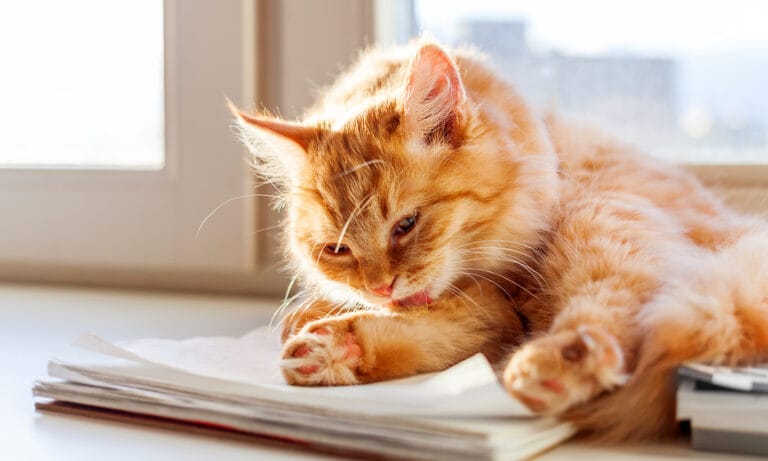Q:My cat rubs up against me whenever I get home. Is my cat showing me affection, or do they just want attention? It’s like they’re trying to headbutt my legs! Is this normal?
A: If your cat is rubbing their head against you, it’s totally normal. They’re likely doing it to show affection (how sweet!), although it could also be an attention-seeking behavior, a way for them to gather intel from the outside world, or their way of “claiming” you as one of their own.
In This Guide:
What Does It Mean When a Cat Rubs Against You?
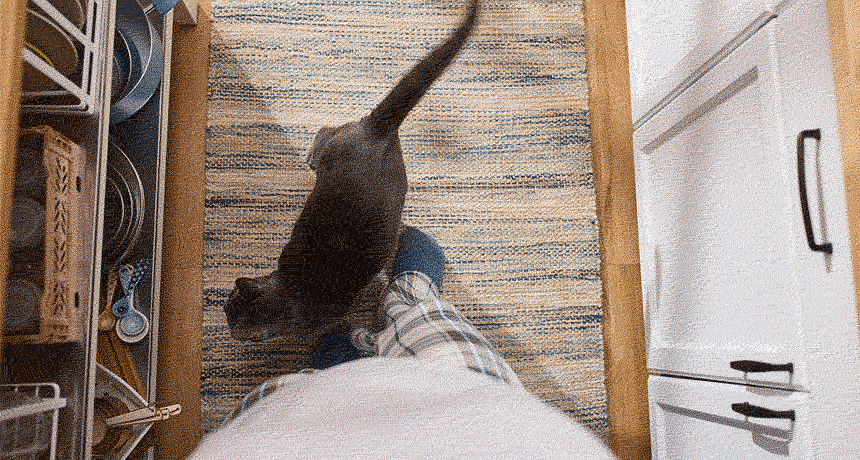
Chewy
They’re Showing Affection
“Cats who rub up against their people are usually showing affection,” says Jennifer Coates, DVM, a veterinarian consultant in Fort Collins, Colorado.
“Head rubbing, which is also called bunting or headbutting, is a way for cats to maintain positive connections within groups.”
So if your kitty loves to bunt your legs or rub against you on the couch, it could just be their unique way of saying they love you.
However, if your cat doesn’t ever rub against you, it doesn’t mean they don’t enjoy your company. They just might show their affection with different body language.
Other signs of feline affection include:
- Resting near (or on) you
- Gazing at you and blinking slowly
- Asking for belly rubs
- Kneading you
They’re Greeting You
If your cat rubs their head on you and begins meowing or purring as soon as you walk into your house, it’s likely just your cat’s way of greeting you.
“Cats rub against their people as a sign of affection,” says Sandra Mitchell, DVM, DABVP, a veterinarian and the owner of All Creatures Veterinary Services, in Eddington, Maine. “It’s the kitty way to say, ‘Hello, welcome home, I'm glad to see you—now get me some food!’”
They Want Something
Regarding that last point, if you feed your cat as soon as you get home or bend down to pet them when they rub their head against you, the rubbing could also be a learned behavior.
“We tend to positively reinforce this [rubbing] behavior by responding with affection in return,” says Dr. Coates.
So, if your cat knows they will get treats, food, or snuggles whenever they rub against your leg, they could start doing this behavior on purpose.
This is totally fine if you enjoy when your cat rubs against your legs, but if you want to stop or redirect it (more on that later), you may want to rethink how you respond to this behavior, because you could be inadvertently encouraging it.
They’re Marking You as One of Their Own
Cats have an excellent sense of smell and use their scent glands—located along their head, cheeks, side of their face, flank, and tail—to mark their territory. When you come home smelling of unfamiliar things, your cat tries to mark you with their scent.
“When a group of cats live together, they form a group scent or ‘colony odor,” says Ingrid Johnson, an IAABC-certified cat behaviorist and owner of Fundamentally Feline in Atlanta, Georgia.
“We leave the house almost every day disrupting that group scent. They rub on us and use their scent glands to make us smell like the family again.”
It also “notifies other cats that ‘this is my person,’” Dr. Mitchell adds.
We’re not sure whether we should find this cat behavior possessive and creepy, or adorably endearing? We’ll go with the latter.
Should I Worry if My Cat Is Rubbing Against Things All of the Time?
Our experts agreed that, in general, you shouldn’t worry if your cat is rubbing against you or other objects. “As a rule, rubbing is a normal behavior in cats and not indicative of a health problem,” Dr. Mitchell says.
However, if the rubbing is completely out of character for your cat or if it becomes excessive, it could be a sign of a medical problem.
The following health conditions can cause cats to itch or rub themselves excessively:
Also, unspayed cats in heat may rub against their pet parents excessively.
Make an appointment with your veterinarian if your cat’s rubbing is unusual for them, or if you are seeing any other potential signs of illness or injury.
How Do You Get a Cat To Stop Rubbing Against You?
If your cat is rubbing against you or giving you headbutts (and you don’t have any reason to suspect a health issue), you should allow this sweet feline behavior to continue and soak up all the kitty love!
You can also use this as an opportunity to bond with your cat in other ways, like teaching them how to play fetch. After all, dog parents shouldn’t get to have all the fun!
But, if it truly does bother you, Johnson suggests redirecting the behavior with a lure toy or tossing some treats away from them.
“It would likely positively distract the cat away from what they’re doing,” she says.
This content was medically reviewed by Wailani Sung, DVM, DACVB.
Learn more about weird cat behavior:
Share:
